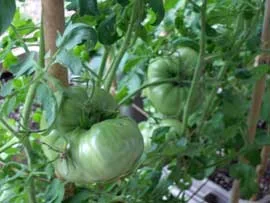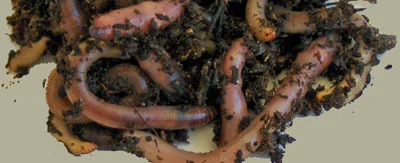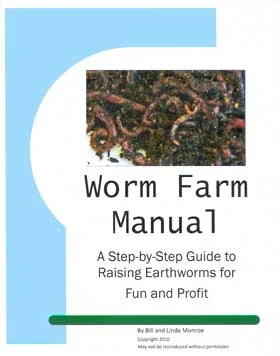There's no doubt that many folks are looking for a way to earn more money. Whether you've lost your job or just want to earn some extra cash for your budget, you may be looking at
worm farming as a possible answer to your cash flow problems.
Let's examine the top 10 reasons worm farming may be a good business idea for you to try in 2011 from the "
vermicompost and worm castings as fertilizer"side of it. If you raise earthworms, you're going to have literally tons of this stuff.
1. Economic Downturn.
No one knows how long this "great recession" is going to last. No one know when the jobs will come back. No one knows when companies will start hiring again.Instead of waiting around for things to get better, why not be proactive and start your own business? If not now, when? You can start a worm farm with very small amount of money as compared to other business.
And you can start earning money in a very short time. For this reason and for the ones that follow, worm farming is an ideal business for the times.
2. Rising Oil Prices.
Let's face it. Oil prices are only going to go up. The rising demand and diminishing supply pretty much guarantee that. And with rising oil prices comes rising fertilizer prices. Farmers and gardeners have been looking for alternatives to chemical fertilizers for a while now so guess what? Worm castings and vermicompost have gained tremendous interest in recent years as the fertilizer of choice.
The benefits have been know for some time and these organic fertilizers were once widely used. But now that necessity is forcing growers "back to the future" so to speak, the market for worm castings is seeing a tremendous resurgence.
Since the market and interest for worm castings and vermicompost is growing by leaps and bounds, finding buyers for your worm created fertilizer is almost assured. That's a very good reason to consider the worm farming business.
3. The "Green Movement"
Environmentalism has become main stream. What was once considered "out there" and "weird" has now been accepted by almost everyone. Going green and considering the environment when making choices permeates through all of society now. Farmers, gardeners, and people just looking to make their grass greener are becoming more aware that there are other choices out there than the standard chemical fertilizers and that these choices are better for the environment.
Worm castings actually improve the soil, adding microbes and humate that will leave the soil better off when it is used. This "green movement" has broadened the market in a huge way, insuring you many more customers for your castings and compost that ever before. If ever there was a time to be in a sustainable, organic,"green" business, that time is now.
4. Food Safety Concerns.
With every news event about a new outbreak of salmonella, e-coli, or tainted food, the level of anxiety most people have about the safety our food supply grows.
The rise in home gardening, neighborhood co-ops and the like has increased the demand for organic, safe fertilizers and soil amendments. "Locally grown" is gaining in popularity. You can probably find buyers for all your vermicompost and worm castings right in your own town. This local market would be easy and economical to service, as shipping heavy compost and castings can be prohibitive. You could deliver and have pick-up for your vermicompost and pocket the cash.
5. It's a perfect home based business.
If you are limited in space, you can start small and expand and your business grows and you gain in knowledge. If you have a basement, garage, or backyard, you can find enough space to put in your beds and harvesting tables.
In our "Worm Farming Manuel", you'll find plans and descriptions of "worm condos" and other bed options that even the most tiny of abodes can accommodate.
6. You can start small and grow.
Start with one bed or two. You will begin making money in a very short time and can put the earnings toward building more beds and buying more "breeding stock".
This slow, steady build up is probably the best strategy for beginners, as you can learn and figure things out without risking money or time while your are in the learning process.
7. It's the perfect "family" business.
The Worm Farming Business can involve the whole family. Children are usually fascinated by the earthworms and the spouse can participate with the bookkeeping, marketing or the actual daily care and feeding. What better way to bring the family together than with a common purpose and home-based business. It's fun, rewarding, and profitable.
8. You can do it yourself.
Conversely, if your a single Mom, divorced or just leaving home to be on your own, the worm farm business is one that you can do all by yourself. You can always hire temporary help once your business grows, but in the beginning, it's possible go it alone.
9. Low overhead.
The start up costs are tiny as compared to other possible home based business. It's a low-tech operation that doesn't require lots of equipment or space. And the best part about the worm farming business - it's a truly "sustainable" business. The worms will replace themselves if you manage your population correctly and their castings are your "free" fertilizer. Once your initial investment of starter worms is made, you probably won't ever have to buy another worm.
Bedding and feed can be often be found for free and the materials for beds can be salvaged.
Energy consumption is low and "office space" (your kitchen table) can be very cheap.
10. Doesn't require advanced degrees or high education.
You won't be spending years in the classroom getting a degree before you can start earning very good wages in the worm farming business. Basic education and a good dose of common sense are the only requirements to be able to handle the day to day operations of your worm farm business.
Not to say that experience in accounting, sales and marketing won't be of added value and will contribute to your success, but the necessary skills and know-how to run a successfully worm farming business is possessed by almost everyone.
As for higher education, you won't learn how to be a worm farmer in any university or school that I know of. Most of your knowledge will be gained by quizzing worm farmers that you know (if they're willing to part with their closely held secrets) and a few dated books out there.
The secrets and methods for worm farming that can speed up your business and save you time and money aren't common knowledge. If you had access to this specialized knowledge, time would be shortened before making a profit and the expense of "learning the hard" way by trial and error would be eliminated.
If you know of a worm farmer nearby or one that you can call, I suggest you contact them and see if they are willing to answer some questions and give you advice. It doesn't hurt to ask. I can tell you by personal experience, however, you may find that most worm farmers hold their hard earned knowledge close to the vest.
That's why I've assembled my step by step guide for worm farming, to give the novice worm farmer the necessary know-how needed to get started.
My "Worm Farm Manuel" gives you a good road map to follow and explains how to set up your worm farm, worm beds, and how to market your products. It contains the knowledge and secrets to worm farming that only comes from years of operating a successful worm farm.
Rather than learning the hard way, or wasting time trying to figure out the best way to go, our manual answers most of your questions and helps you get off on the right foot in your new worm farming business.
Taking all the questions we've been asked through the years and laying out the business in a chronological and logical order - from start up to making your first sale to increasing your inventory - I feel this manual will eliminate most of the fits and starts for you that we encountered when we first began our worm farm business.
So, what are you waiting for? If you're looking for a way to earn extra money or a good home-based business with low start up costs and a market that's taking off like a rocket, the worm farming business just might be your ticket.
Worm Resources:
 Worm Farm Manuel
Worm Farm Manuel: A Step-by-Step Guide to Raising Earthworms
Red Worms and European Nightcrawlers.














